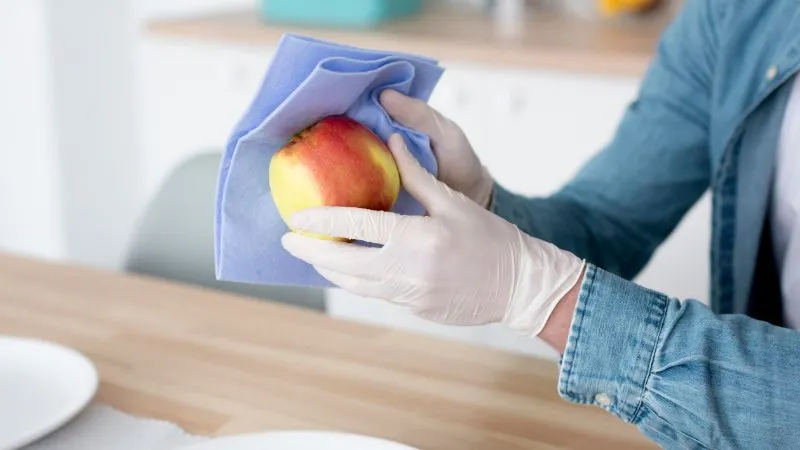The COVID-19 has created a very tense situation worldwide, leading to social distancing and self-isolation. While it spreads at a very fast rate, there are certain myths that have caused more panic in people. There is a constant fear of catching the virus either through the air or by eating food.
What is the SARS-2 coronavirus made up of?
Like all other viruses, the coronavirus is made up of RNA or DNA, proteins, and lipids. The wall containing the protein and RNA is made from lipids, which can be difficult to break down. The protein helps the virus to replicate itself in the host's body while the RNA helps the spreading of the virus into the host cells.
Can you catch COVID-19 from food?
As of now, there is no evidence that shows that coronavirus can be transmitted through food. Food can be classified into types, which are cooked food and grocery from stores. Cooked food is made at high temperatures, so there are no remains of any virus left in there. Most importantly, whenever you eat, your stomach produces acids that kill all kinds of viruses and bacteria. So the virus cannot be transmitted into your body.
However, when you get packaged food from the grocery stores, you should disinfect all packaging before using it. Similarly, all kinds of fruits and vegetables should be washed thoroughly before usage.
Why is food not a risk?
The transmission of the virus from food is made less likely from other factors as well. People are already scared of catching normal illnesses from food and make it a habit to wash everything from utensils to plates to cutting boards. The novel coronavirus has made people more particular about food safety measures; hence, there is almost no chance of the virus spreading through food. Another important aspect is that according to research, even if the virus is present on food surfaces, it cannot go inside. Most importantly, the lifespan of the virus is short-lived, so it will die within a few weeks. So if it is present it will not grow, it will die.
How can the coronavirus spread?
The COVID-19 is mainly spread from the respiratory droplets of an infected person, either through a cough or a sneeze. It can then remain in the air for up to 3 hours as an aerosol. Furthermore, looking at other surfaces, the virus can stay alive on copper for about 4 hours, on cardboard for 24 hours, on plastic materials and stainless steel surfaces for 2 to 3 days. It can spread if a person touches an infected surface and rubs the same hand on their mouth or nose.
How can the spread of COVID-19 be curtailed?
Washing your hands and disinfecting all surfaces is the key to prevent the coronavirus from spreading. You should wash your hands for at least 20 seconds with soap and make sure to rub your hands properly to wash all the germs away. If soap is unavailable, then use a hand sanitizer with at least 60% alcohol content in it. Another way to prevent the spread of this disease is to remain indoors and isolated. Wear a mask if you do need to step out. Maintain a safe distance from your loved ones and keep a check on your hygiene as well as the cleanliness of the house.
Can coronavirus be fatal?
Since the virus has been spreading so fast globally, there is a fear of dying from the virus. If your immune system is strong, and you take good care of yourself in the initial phases of the disease, you can recover smoothly. Statistics show that the recovery rate is higher than the death rate. However, it may prove to be fatal for some who already have a weak immune system and other illnesses. In such cases, treatment in hospitals become necessary











